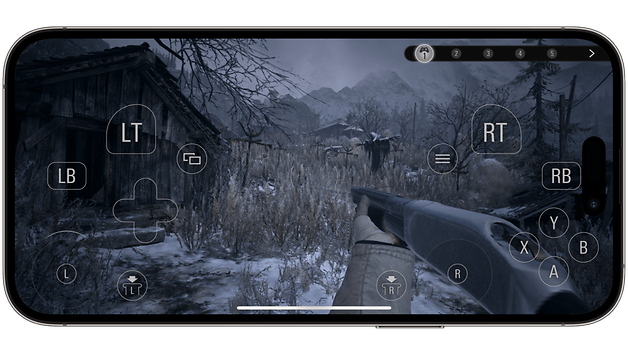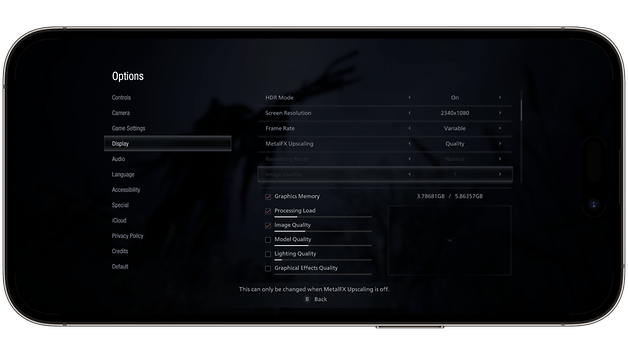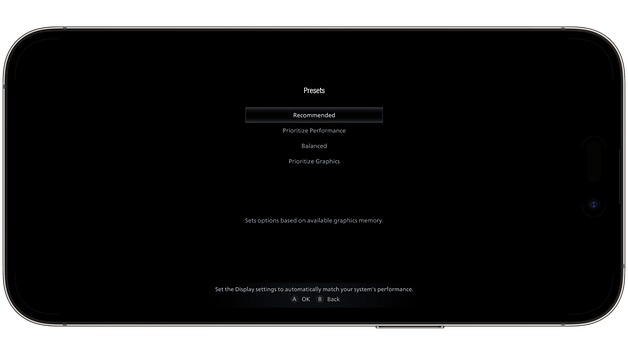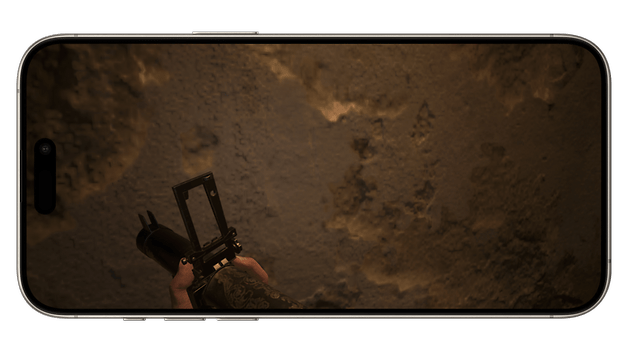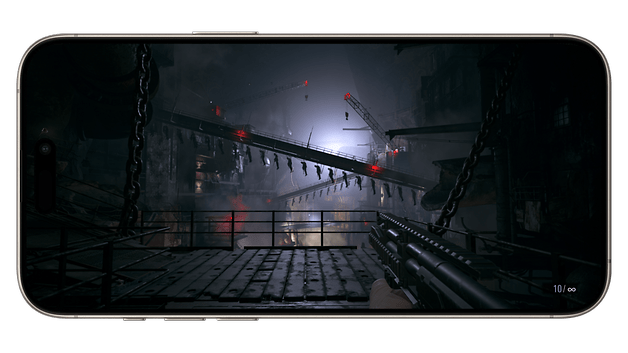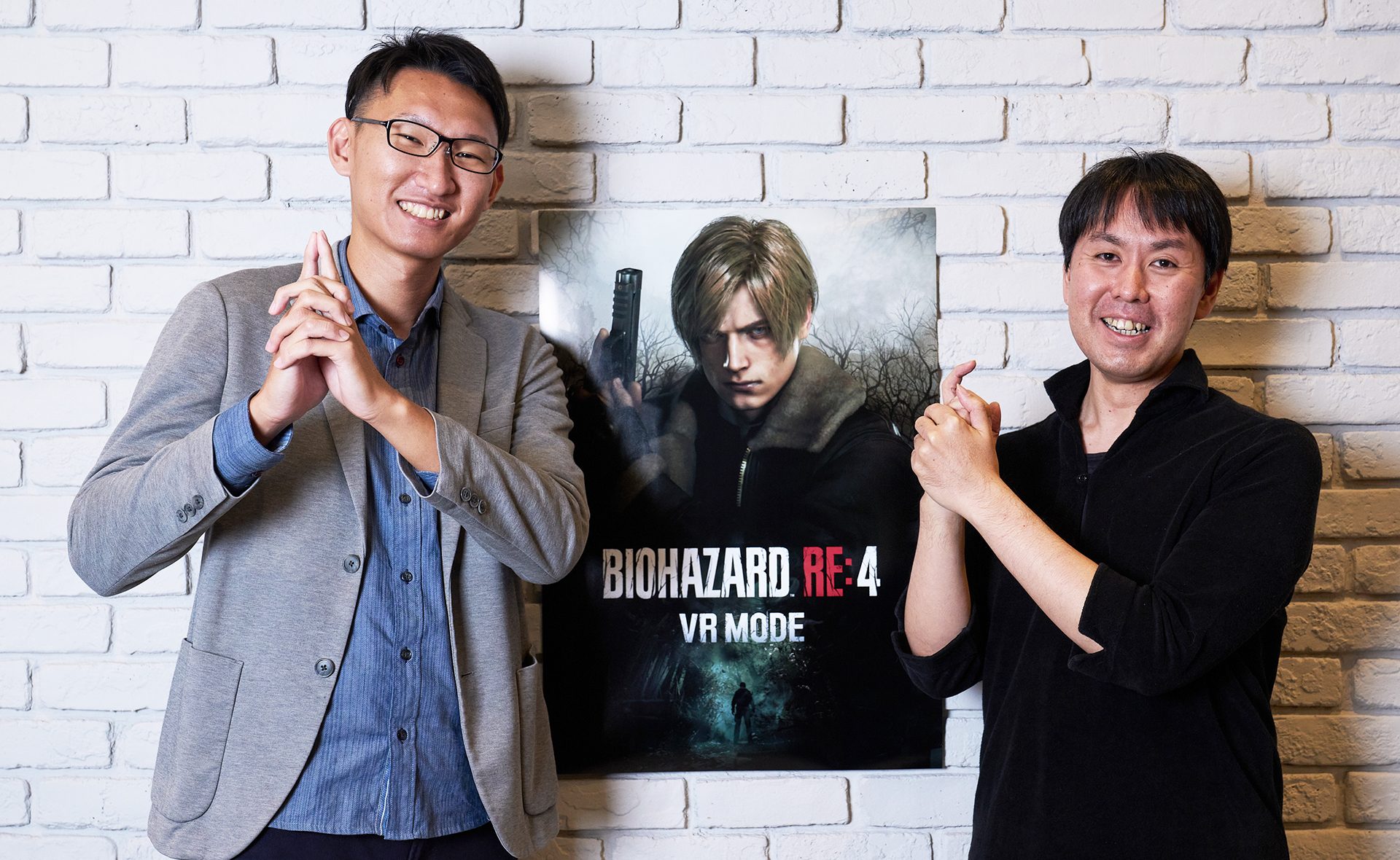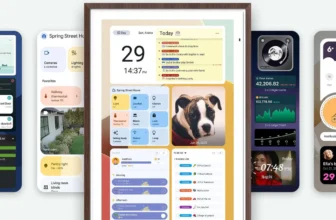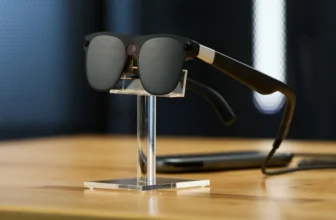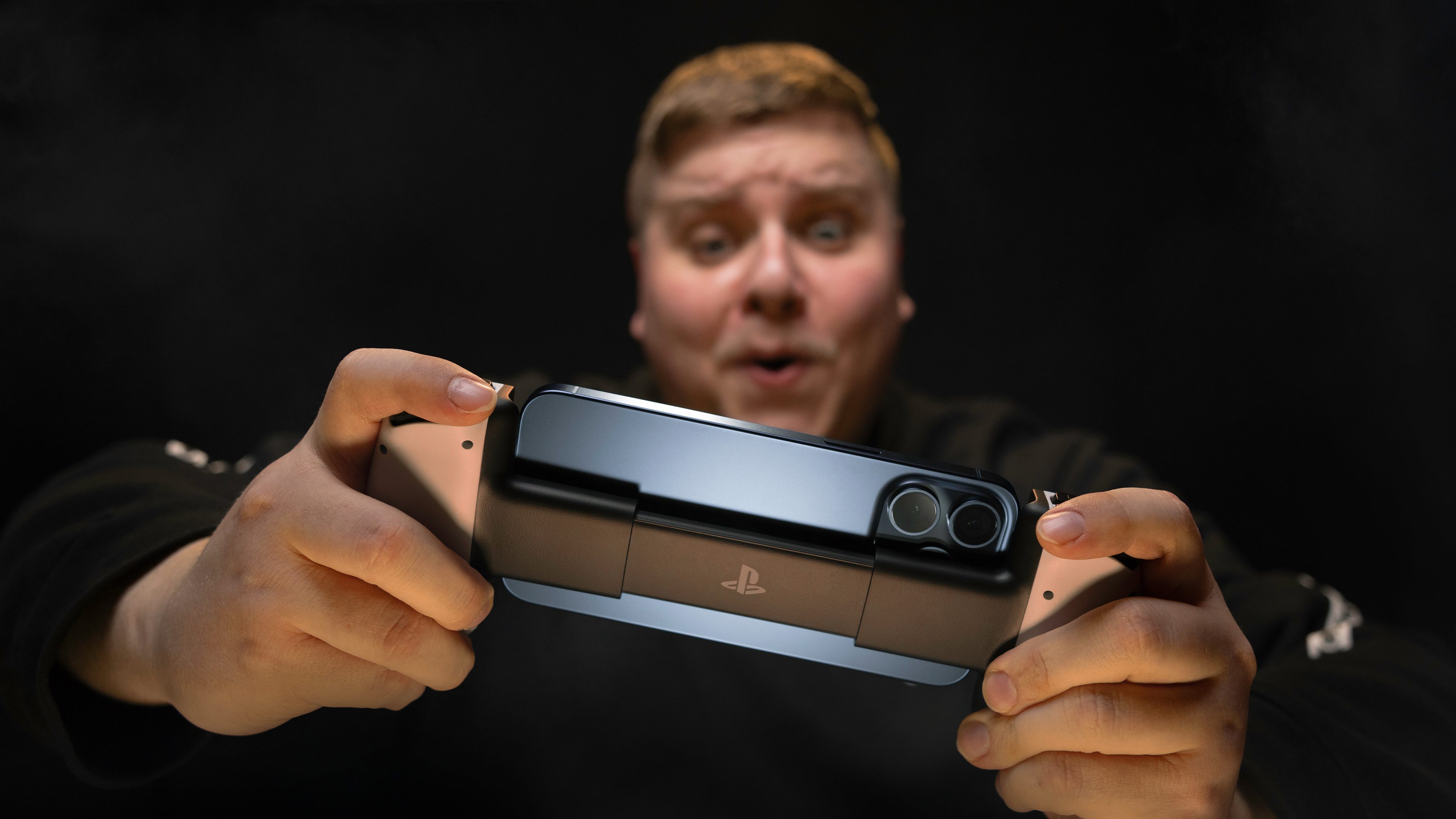
I completed Resident Evil Village on the iPhone 15 Pro Max (review) and came way impressed by the graphics and performance of Apple’s smartphone. It is currently the best mobile gaming experience in my opinion. I’m going to share my admittedly subjective but honest opinion with you, by explaining why this is indeed a major step forward in the development of true smartphone gaming.
Do not think that this is a Resident Evil Village review on the iPhone 15 Pro Max. The game was released over two years ago on consoles and the PC. Reviews of the game are plentiful. The purpose of this article is to see whether the iPhone as a viable option to play triple-A games while you are on the go.
How I played Resident Evil Village on the iPhone 15 Pro Max
Before I get carried away, some context is required: the game’s menu offers a ton of graphics settings, just like those found on consoles and PCs. You can customize virtually everything.
Since we’re gaming on an iPhone, you need to balance your selection to ensure that the game runs reliably and smoothly. That’s why you can choose from several presets that will save you the trouble of having to fiddle with everything yourself.
I opted for the “recommended” preset, which automatically adjusts graphics options according to the available memory. My resolution was 2340×1080, my FPS rate varied with MetalFX Upscaling set to “quality.”
In the game menu, you can see the maximum amount of iPhone RAM available for the game. Based on my playthrough, I was consuming 3.78681 GB out of 5.86332 GB. Yes, the iPhone 15 Pro Max has more than 6 GB of RAM, I KNOW, THERE IS NO NEED TO INSULT ME IN THE COMMENTS! However, that’s simply the maximum amount of RAM the iPhone allocates for the game.
Finally, I played almost exclusively with a Backbone One PlayStation edition wireless controller (which I’d like to review if you’re interested). At times, I also streamed on Twitch via the iOS app for my sister to follow my gaming shenanigans. Horror games work very (all too) well on me. I needed company so as not to lose all my virility and hide under my comforter at the first jump scare. I also played with unlimited ammo enabled because I have no dignity. There, you can insult me in the comments.
An unrivalled portable gaming experience
Let’s get to the heart of the matter. A PS5 spotted from afar, a PS4 (Pro) when seen up close. That’s how I’d sum up my experience of Resident Evil Village on the iPhone 15 Pro Max in terms of graphics and performance.
Overall, I think it’s pretty crazy that the game ran so well. It looks better than a Nintendo Switch port, and it runs way smoother. It really feels like a next-generation game on a tiny screen.
A closer look reveals that the graphics are equal to that on a PS5 or a $1,500 gaming PC, but rather that of a PS4. As with any game on any platform, there are some ugly textures that makes any hyper-compressed JPEG proud.
I also experienced a few crashes at the beginning, when I was fiddling with the graphics options. Limited the game’s frame rate to 120 FPS with the preset graphics quality crashed the game systematically. I also tried setting all options to maximum. The RAM meter then showed 16 GB/5.86332 GB. Miraculously, the game didn’t crash, but it did run at 3 FPS (a fancy way of saying that it was sloooooow).
Apart from that, the game is still really beautiful. This is especially so with the iPhone 15 Pro Max’s small 6.7″ screen, which is more forgiving of imperfections than a large tablet, despite the rather moderate graphics quality of my presets.
At home, the game ran fairly fluid, but I wasn’t running it at a constant 60 FPS. It oscillated between 40 and 60 FPS. In areas with very dense scenery, I could feel the occasional drop in framerate to 30 FPS. The benchmark software I was going to use to measure FPS doesn’t yet support iOS 17. When it does, I may update this article accordingly.
In the meantime, you can check out this YouTube video which shows that the iPhone 15 Pro Max was able to maintain a 49 FPS framerate on average over a 20-minute session, without overheating and without thermal throttling. That’s pretty impressive.
Visually, Resident Evil Village on iOS remains a visual masterpiece. Some lighting effects are sublime. The level of detail is incomparable with dedicated mobile games. Some cutscenes were rendered using the game’s own engine in real-time rather than a pre-rendered video, looking all immersive and beautiful.
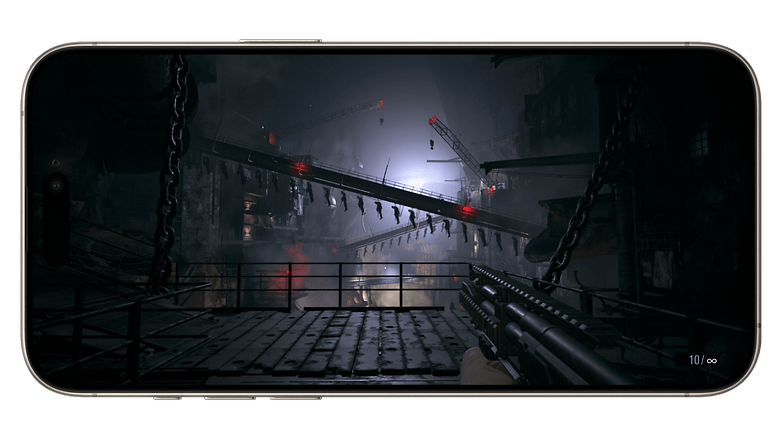
Right from the start of the game, I was also blown away by the effects of the snow falling and moving according to the wind.
The controller’s gameplay is adapted perfectly, and I didn’t need to perform any key mapping. The touch controls, while not quite as ergonomic as the joystick, worked flawlessly.
In short, this is the first time I’ve played a mobile game that fully exploits the power my smartphone is capable of. What Apple is offering is not a premium mobile game. It’s a premium console game on mobile. And that makes all the difference.
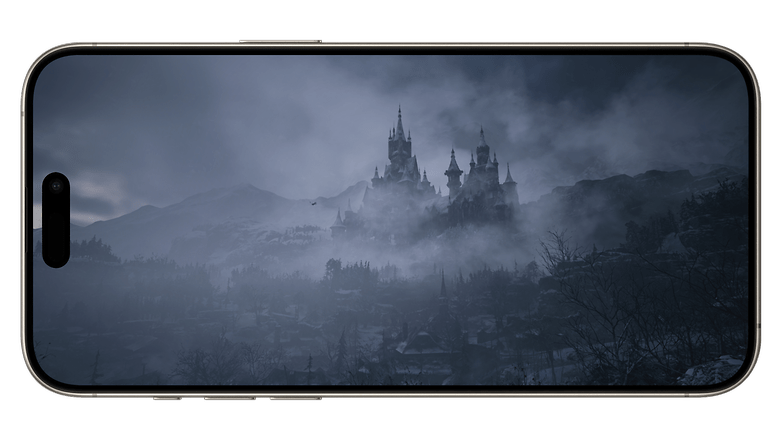
An imperfect portable gaming experience
This is the moment when I forced myself to be more realistic. As I mentioned, this is the best mobile gaming experience in my opinion. However, it’s not perfect.
I’ll begin with the less important negative points before tackling the real problem (namely, Apple’s target audience).
These include, in no particular order, battery life, which was literally drained by games as resource-hungry as Resident Evil Village. As I explained in my iPhone 15 Pro Max review, on a full charge, the phone lasted for just over 3 hours before it dropped to 20% battery life.
Of course, you’ve got plenty of MagSafe accessories to extend the iPhone’s battery life. Unless you’re planning a videogame marathon on a long-haul flight, the three hours of battery life will be more than enough for most gamers. This is especially so as most gamers want to play on a portable console not when they are outdoors or traveling, but to do so in bed or the toilet. Yes, let’s be honest with ourselves.
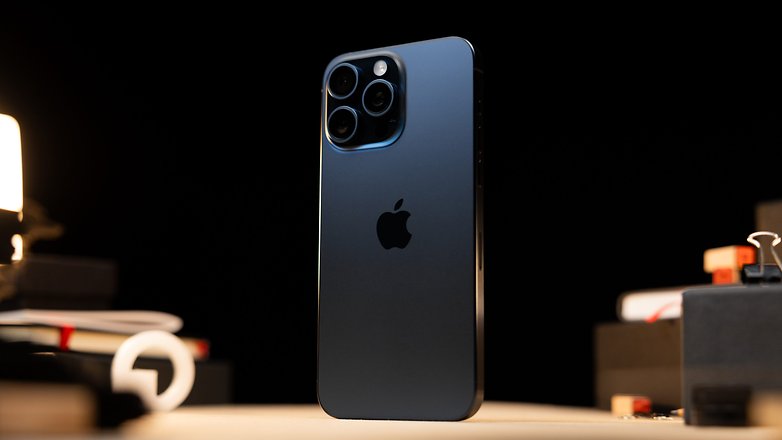
The question of the catalog of compatible games is also a thorny issue. First, there aren’t that many titles available yet. Apart from Resident Evil Village, Resident Evil 4 Remake is due to be released on December 20, while Death Stranding is slated for a January 2024 release, followed by Assassin’s Creed Mirage later.
Yes, these games are ports. It takes a lot of time and a lot of money for developers to adapt their games to Apple’s platform. However, I’m not worried about that. These games are not only ported to the iPhone, but to all Apple products with at least an M1 chip powering them. That is quite a potentially sizeable user base that should encourage more major developers and publishers to take the plunge.
The real problem with the game catalog is the price. The Resident Evil 4 remake will cost $70. Death Stranding will cost $39.99. Who would be willing to pay that much when console and PC versions are the same price, or even cheaper?
My iPhone runs HD console games, fine, but so what?
Before answering that question, you will have to ask yourself who wants to play console games on an iPhone? ME!!! This not because I’m a sucker for video games as the only source of serotonin and the only vehicle for social interaction.
I think the argument that mobile gaming is just for gacha-games, multiplayer games stuffed with microtransactions and a few indie gems, is misdirected. Yes, smartphone gamers mainly play games that aren’t from a triple A library. Yes, smartphone gamers are very likely to empty their parents’ bank accounts to buy virtual currencies.
For me, it’s my go-to choice rather than a real buying pattern. Personally, I’ve been playing Call of Duty Mobile for years. From 2019 to 2021, it was my main game, across all platforms. I even paid hundreds of dollars for in-app purchases.
However, I made these purchases to refresh my gaming experience. Call of Duty Mobile has hardly evolved in its four years of existence. The Battle Royale maps are still the same. The developers have no incentive to improve the game, since they make solid gold from microtransactions.
What I don’t think they understand is that people don’t buy skins because they like the game. They’re royally screwed. The game hasn’t changed in years. They like playing it, but they’re getting bored. The problem is, there’s no alternative. It’s the same everywhere. So, they buy a new weapon or a new outfit just to “mix things up a bit”.
The plague of microtransactions isn’t just a symptom of a sick mobile gaming industry; it’s also a clear indicator that smartphone gamers want more. I may be wrong, but I’m convinced that there’s a market for triple-A games selling for €40 to €60. Games that offer a real console experience, rather than repetitive gameplay loops that make you want to pay to go round in circles a little less.
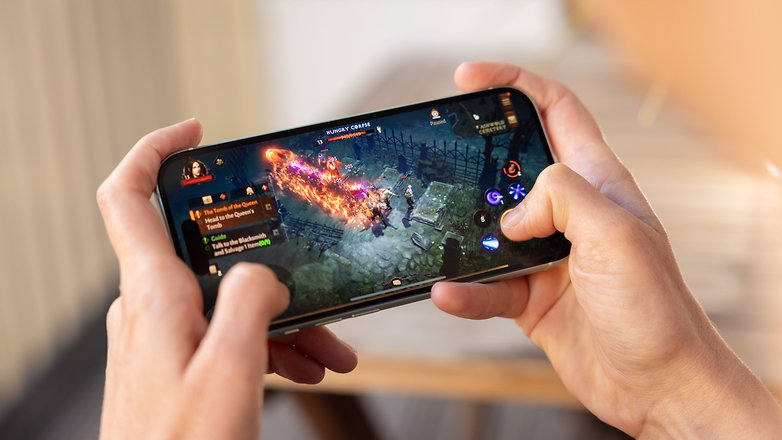
Conclusion
When the iPhone 15 Pro was launched in September, after seeing the various games that could run natively on the smartphone, I was already betting that Apple was going to turn mobile gaming on its head.
My playthrough of Resident Evil Village on the iPhone 15 Pro Max confirmed this thought. No game on any other smartphone comes close to delivering a console-like experience, and this is the first time I’ve seen a “mobile” game push the power limits of a smartphone, especially an iPhone.
That’s what sounds so crazy to me. I can’t believe Apple hasn’t come out with a $3,000 handheld console that would be the only one to let you play console and PC games on an Apple product.
It’s crazy that Apple has made one of the biggest technological leaps in mobile gaming in recent years, and that this is just one of the many uses you can put your iPhone 15 Pro/Max to.
I could have launched into comparisons with the Steamdeck, the Lenovo Legion Go (review), or the Nintendo Switch. The first two examples are true mini-PC laptops offering superior performance. The Switch also offers gameplay experiences other than simple portability with its Joy-Cons. Please keep in mind its extensive catalog of exclusives!
The iPhone 15 Pro has yet to find its niche. It’s more powerful than a Switch and more portable than a mini-PC. It’s also much more versatile because it’s a smartphone, not a console you use just to play games.
But I’m going to get scolded if I don’t wrap this article up quickly. Above all, the idea of this article is not to sell you the iPhone 15 Pro as an alternative or replacement for portable consoles. It’s just another option, another portable console among many others, to meet different needs and desires.
Well, I’ll stop my fanboy-ism here. I need to mentally prepare myself for Resident Evil 4 on December 20. In your opinion, can the iPhone 15 Pro (Max) be a relevant handheld console in the gaming market? If you don’t have a console and don’t plan to buy one, would you consider playing triple-A games on your iPhone?

